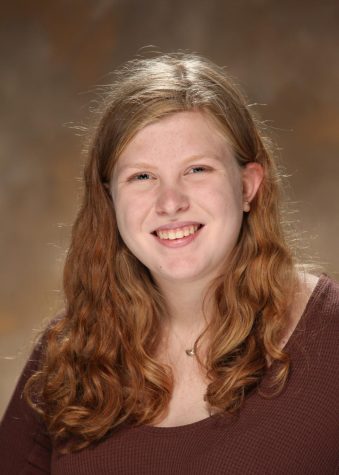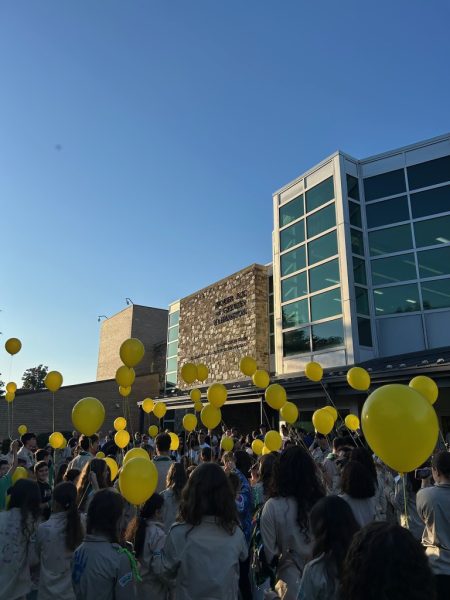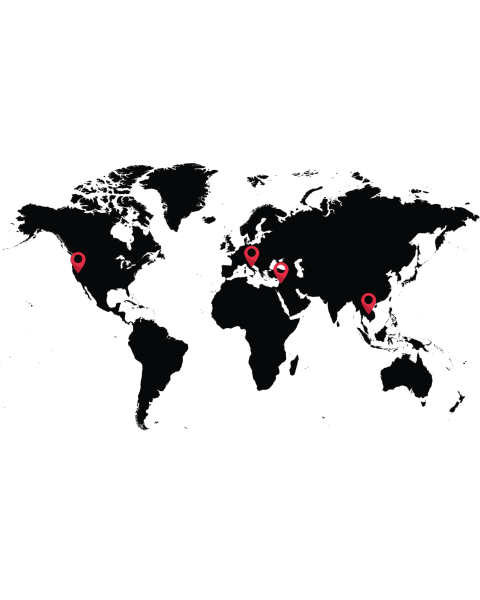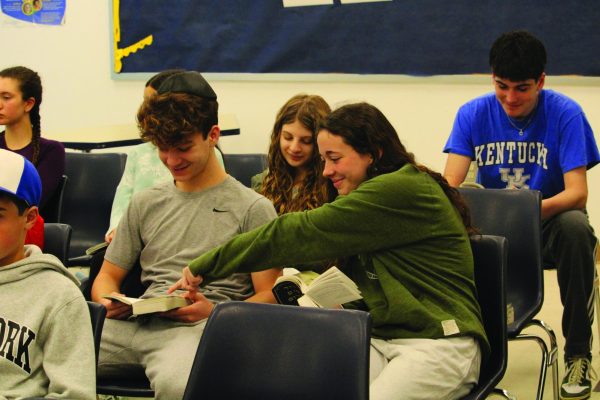Students turned teachers: New program to the area encourages expansion of Jewish learning
As summer approaches and most students wind down their Judaic learning for the year, sophomores Josh Diewald and Josh Siegel have embarked on an entirely new form of Jewish study. This time, however, they are the teachers.
The two are participants in the Student to Student project, an initiative new to the D.C. area that brings Jewish teens into public schools to teach them about Judaism. Topics discussed include Jewish life cycle events, the Hebrew language, Israel and the Holocaust.
The Student to Student project was started in 1992 by the Jewish Community Relations Council in St. Louis. Since then, according to the St. Louis JCRC, it has reached thousands of St. Louis students. The program’s website states that its goals are to “impart information, foster understanding and counter stereotypes.”
In late 2017, the program received a $15,000 grant, and the JCRC decided to use this money to expand to other cities. Ariel Troy, a freshman at Washington University in St. Louis and a Berman Hebrew Academy alumna, had been in touch with the St. Louis JCRC throughout her senior year to implement a similar program in D.C. area. The JCRC went on to select D.C. as one of the cities for expansion, along with Indianapolis and Des Moines, Iowa.
“There is a big Jewish population in the Montgomery County and D.C. area, but that doesn’t mean that people in the area are educated about what Judaism really is,” Troy said. “I wanted to help kids in the area to have dialogue about faith.”
The JCRC of Greater Washington has worked closely with the St. Louis JCRC to implement the Student to Student program in the area. Currently, there are eight Jewish participants, three from Jewish day schools and the rest from public schools, all of whom were recruited through synagogue outreach and online advertising. The JCRC hopes to expand this program further next school year.
According to Associate Director of the JCRC of Greater Washington and the mother of Josh Siegel Guila Siegel, the JCRC of Greater Washington was enthusiastic about implementing this program because it has proven to be a successful way to raise awareness about Judaism.
“While the JCRC has worked for many years with MCPS administrators, principals and faculty to ensure safe and respectful learning environments for all students, including Jewish students, we realized we needed to introduce a program to reach students directly,” Guila said. “Peer-to-peer education has proven over time to be a highly successful method of influencing, teaching and changing attitudes among teens.”
Josh Siegel became involved with the program after finding out about it from his mother. He is enthusiastic about the program, and thinks that it is especially important in this political climate to teach students about Israel and the Holocaust.
“Antisemitism has been on the rise, especially among youth, and there has been a lot of anti-Israel bias, and a lot of that just comes from lack of education,” Josh Siegel said. “So the main goal is just education and while we can’t change all of that, it’s important to do it one little step at a time.”
So far, the students in the D.C. area have led a trial workshop at Adat Shalom synagogue and a workshop at Walter Johnson High School on April 26. Josh Siegel describes the workshops led by the Jewish student-teachers as both “serious” and “fun,” as they discuss heavy topics such as the Holocaust, but also engage in more lighthearted activities.
Josh Siegel hopes to get more students from Jewish day schools to participate as teachers. He believes that it is important to highlight cultural and daily Judaism, which he thinks can only be done with the involvement of Jewish teens from both public schools and Jewish day schools.
This desire to highlight the diversity of Judaism reflects the Student to Student program’s goal to raise awareness about Judaism among students who have never been exposed to the religion.
“Ultimately, our hope is that by challenging false stereotypes about Judaism and Jews among non-Jewish teens, and exposing those students to confident, articulate Jewish peers who are proud of their heritage, we can make a dent in the increasing prevalence of antisemitic incidents in our area schools,” Guila said.
This story was featured in the Volume 35, Issue 6 print edition of The Lion’s Tale, published on May 30, 2018.





